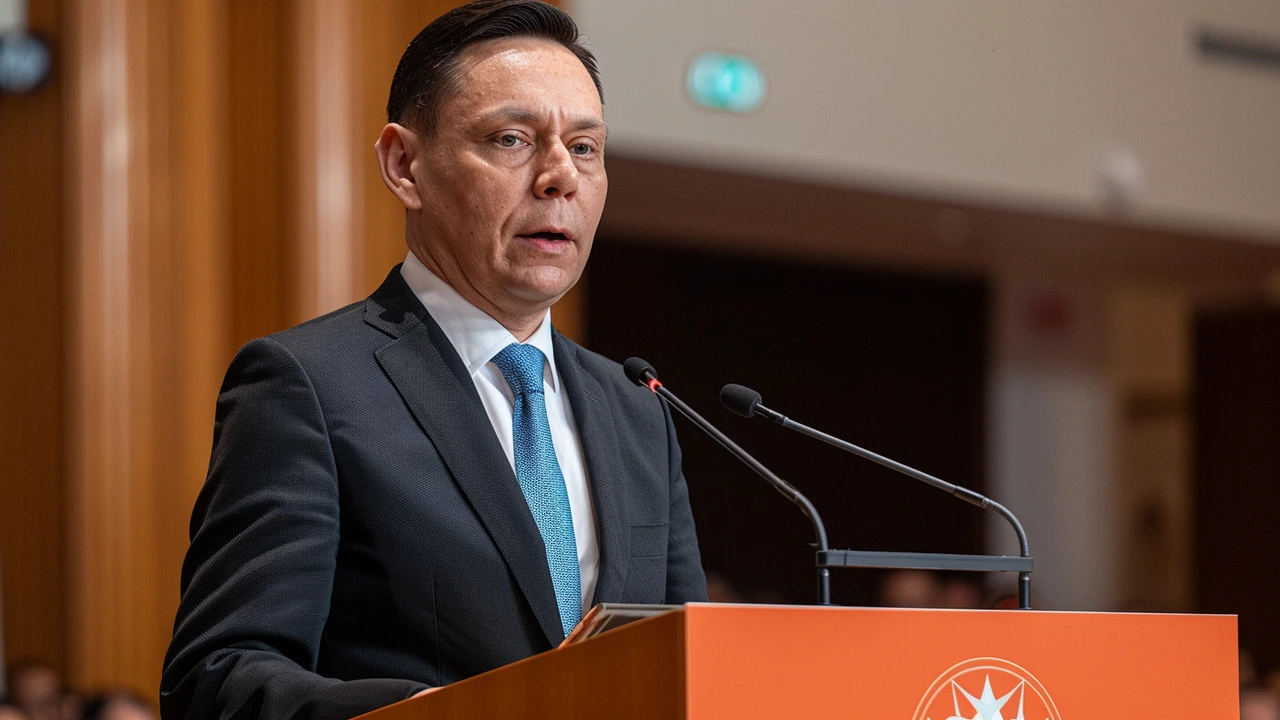Portugal's Stricter Migration Policies: A Comprehensive Look
Portugal, often acknowledged as one of the more liberal countries within the European Union, has recently adopted a firmer stance on immigration. The government has introduced a series of new measures aimed at regulating the inflow of asylum seekers and migrants, sparking a complex debate about national security, public service strain, and human rights. These robust changes have come under significant scrutiny as Portugal attempts to balance a humanitarian approach with the pragmatics of national interests.
Stricter Visa Requirements and Border Security
The newly implemented policies bring about a slew of changes, starting with stricter visa requirements. The Portuguese government plans to introduce more rigorous vetting processes for visa applicants to better scrutinize and verify their backgrounds. This move is likely to result in improved surveillance and monitoring, reducing the chances of fraudulent entries and overstays. However, it also means longer waiting periods and increased documentation for potential migrants, which could deter genuine applicants.
Additionally, there is a noticeable increase in border security measures. These are designed to prevent illegal crossings and reduce the incidence of undocumented migrants entering the country. Border patrols will be enhanced, and technological aids such as surveillance drones and improved detection systems will be employed. This step aims to create a fortified perimeter, ensuring that only those with legitimate reasons to enter are permitted.
Expedited Deportation Processes
Perhaps the most controversial aspect of Portugal’s new migration policy is the expedited deportation process for those deemed inadmissible. The government has streamlined the procedures for identifying, processing, and deporting individuals who do not meet the entry criteria. This efficiency aims to reduce the backlog of cases and ensure swift action against those found in violation of immigration laws. While this may relieve the burden on the judiciary and detention facilities, it also raises concerns about the thoroughness and fairness in the assessment of each case.
National Security and Strain on Public Services
As Portugal tightens its migration policies, the government has repeatedly cited national security as a primary motivation. Officials argue that a more meticulously controlled immigration system can help to thwart potential threats linked to terrorism and transnational crime. By ensuring that all entrants are comprehensively vetted, authorities believe they can maintain a safer and more secure environment for the country's residents.
Moreover, the strain on public services has been a focal point in justifying the policy shift. Health services, education, and housing have all experienced pressure from the increasing number of migrants. The government contends that without these new measures, the quality and accessibility of these services could decline, impacting the entire population. By regulating the inflow more strictly, they aim to better allocate resources and maintain high standards of public service.
Impact on Migrant Workers and Asylum Seekers from Africa and Asia
The tightened migration policies are expected to have a profound impact on a significant number of migrant workers and asylum seekers, predominantly from Africa and Asia. These groups have historically found Portugal to be a welcoming destination with opportunities for better livelihoods and security. The new regulations, however, pose additional hurdles and uncertainties for these migrants.
Migrant workers may face difficulties in obtaining work visas or reuniting with their families due to stricter vetting and longer processing times. Asylum seekers, on the other hand, might encounter higher rejection rates and expedited deportation processes, creating an atmosphere of fear and instability within the migrant community. Many fear that these policies could lead to increased instances of undocumented migration and exploitation, as individuals attempt to bypass legal channels in search of safety and employment.
Balancing Immigration Control and Human Rights
Interior Minister José Luís Carneiro has consistently emphasized the need for a balanced approach between controlling immigration and upholding human rights. He asserts that while the government remains committed to safeguarding national interests, it also recognizes the importance of humane treatment for all individuals, regardless of their immigration status. Efforts are being made to ensure that the new policies remain compliant with international human rights standards and provide fair assessment processes for all applicants.
This balancing act is indeed challenging, as seen in other European countries grappling with similar issues. Portugal’s government and civil society are engaged in ongoing discussions to refine and adapt the policies, aiming to find a middle ground that addresses security and service concerns without compromising on compassion and fairness.
Broader European Context
Portugal’s move is part of a broader trend among European nations rethinking their immigration policies. Countries across the continent are struggling with the dual challenges of managing increasing numbers of migrants while fostering integration and social cohesion. The political landscape in many European countries is shifting towards more restrictive immigration policies, influenced by rising nationalism and populist sentiments.
This broader context highlights the complexity of the issue. While national governments strive to address immediate concerns, there is a growing recognition of the need for coordinated, multi-national responses. Collaborative efforts could encompass shared responsibility for asylum seekers, joint investments in third-country development to address root causes, and enhanced legal migration pathways.
Future Prospects
The future of Portugal’s migration policies remains dynamic and uncertain. As these new measures take effect, their outcomes and ramifications will likely inform further adjustments and refinements. Monitoring and evaluating their impact on national security, public services, and human rights will be crucial in shaping future directions.
As Portugal navigates these challenging waters, the voices of migrants, civil society, and local communities will play a pivotal role in shaping policy outcomes. By fostering dialogue and maintaining a commitment to equity and human rights, the nation can aspire towards solutions that uphold both security and humanity.









Cheyenne Walker
June 5, 2024 AT 18:16Portugal’s recent shift reflects a tension between humanitarian commitments and domestic capacity constraints. By tightening visa vetting, the government aims to ensure that entrants possess verifiable credentials, which could reduce overstays. However, the increased procedural load may also discourage legitimate migrants seeking work or refuge. The balance hinges on transparent adjudication processes and sufficient resources for case reviews. Ultimately, a data‑driven approach will be essential to gauge the policy’s efficacy.
Jo Simpkinson
June 12, 2024 AT 03:11Ah the noble quest for borders that never breathe yet somehow swallow the weary souls yearning for safety like a broken clock ticking in reverse
Darrell Kuykendall
June 18, 2024 AT 12:06Hey folks, I get why the government feels the need to tighten things up, but let’s remember that migrants aren’t just numbers, they’re people, families, and future contributors, so perhaps a phased approach could smooth the transition, and we could invest in integration programs, too!
Dean Obijekwu
June 24, 2024 AT 21:01Sounds like a balanced push, let’s keep the dialogue open.
finlay moss
July 1, 2024 AT 05:56Listen, the data is clear – Portugal’s new policy will simply shift the migrant flow to neighboring states, and you cant ignore the fact that such policies historically backfire, causing illegal routes to boom while legal channels dry up, its basic cause and effect, just read the stats.
Carl Gough
July 7, 2024 AT 14:51Yo, forget the stale stats! This is a bold move, a fire‑starter that says Portugal won’t be a playground for cheap labor any longer. The country is drawing a line in the sand, and if you’re not ready for that heat, step aside. We need that kind of guts, not timid paperwork.
Rebecca Hayes
July 13, 2024 AT 23:46The policy overhaul introduces a multi‑layered vetting protocol that could be modeled as a tiered risk assessment matrix. From a compliance standpoint, integrating biometric verification with existing EU‑wide databases will streamline background checks. However, stakeholders must monitor throughput rates to avoid bottlenecks that could impact service level agreements across immigration offices. Continuous process improvement loops will be crucial.
Jason Underhill
July 20, 2024 AT 08:41Sure, that sounds perfect on paper 🙄 but in reality the bureaucracy will just get slower and migrants will end up stuck in limbo.
Kirsten Wilson
July 26, 2024 AT 17:36When you think about borders they’re like invisible lines drawn by fear and hope they echo the old riddles of who belongs and who doesn’t and that’s why any policy feels like a paradox of control and compassion
Michelle Roque
August 2, 2024 AT 02:31yeah its kinda messy but maybe they can fix some stuff?
Killian Lecrut
August 8, 2024 AT 11:26Oh great, because what Portugal really needed was another bureaucracy checklist, right? This is exactly the kind of 'solution' that makes everyone feel safe while nobody actually solves the problem.
Subi Sambi
August 14, 2024 AT 20:21The reality is that such half‑hearted reforms are a smokescreen for political posturing. By inflating the threat narrative, the government can justify authoritarian measures that erode civil liberties, all while claiming to protect national security. It's a classic power play.
Joshua Rainey
August 21, 2024 AT 05:16Oh wow, another masterpiece of policy making, truly groundbreaking and never seen before
Gail Robb
August 27, 2024 AT 14:11Stop buying the hype, this is just a reckless gamble that will backfire on the most vulnerable.
Pradeep Chabdal
September 2, 2024 AT 23:06Portugal’s recent legislative adjustments constitute a noteworthy recalibration of its immigration architecture, reflecting the exigencies of sovereign governance in a fluid geopolitical climate. The implementation of heightened visa scrutiny is ostensibly designed to safeguard national security, yet it simultaneously raises substantive questions regarding procedural fairness. By imposing additional documentary requisites, the state introduces a latent barrier that may disproportionately affect applicants from less privileged socio‑economic backgrounds. Moreover, the deployment of advanced surveillance technologies at border checkpoints, while technologically sophisticated, necessitates rigorous oversight to prevent potential infringements on personal liberties. The expedited deportation mechanisms, framed as an efficiency measure, risk curtailing due process if not buttressed by transparent adjudicative standards. It is incumbent upon legislators to balance the imperatives of security with the moral obligations inherent in international human rights covenants. Empirical evidence from comparable EU jurisdictions suggests that overly restrictive policies can engender clandestine migration pathways, thereby undermining the very security objectives they aim to achieve. Consequently, a nuanced policy blend, integrating comprehensive integration programs with targeted enforcement, may yield more sustainable outcomes. Stakeholder engagement, including civil society and migrant advocacy groups, should be institutionalized to foster collaborative solution‑finding. Financial allocations must also reflect the increased operational demands of border monitoring, ensuring that resources are not merely symbolic. Additionally, the sociocultural impact on host communities warrants systematic assessment, as public perception can influence policy legitimacy. In sum, the success of Portugal’s migration reforms will hinge upon their adaptability, proportionality, and adherence to both domestic law and international norms. A vigilant, evidence‑based monitoring framework will be essential to iterate and refine these measures over time. Ultimately, a balanced approach that safeguards security while upholding humanitarian principles will enhance Portugal’s standing as a progressive, yet prudent, member of the European community.
andy heri
September 9, 2024 AT 08:01You’ve unpacked the complexities brilliantly; it’s clear that a measured, inclusive strategy will serve both security and humanitarian goals. Let’s keep pushing for transparent oversight and community dialogue.
Jeremy Perlman
September 15, 2024 AT 16:56Honestly, this whole thing is a mess!!!
George Georgakopoulos
September 22, 2024 AT 01:51What if the real agenda is to funnel migrants into a covert data harvesting network under the guise of border security, all while elite technocrats profit from the surveillance industry?
Abirami Nagarajan
September 28, 2024 AT 10:46We should watch how these changes affect everyday people.
shefali pace
October 4, 2024 AT 19:41Indeed, the ripple effects will shape countless lives, and with thoughtful action we can steer the tide toward hope and resilience.